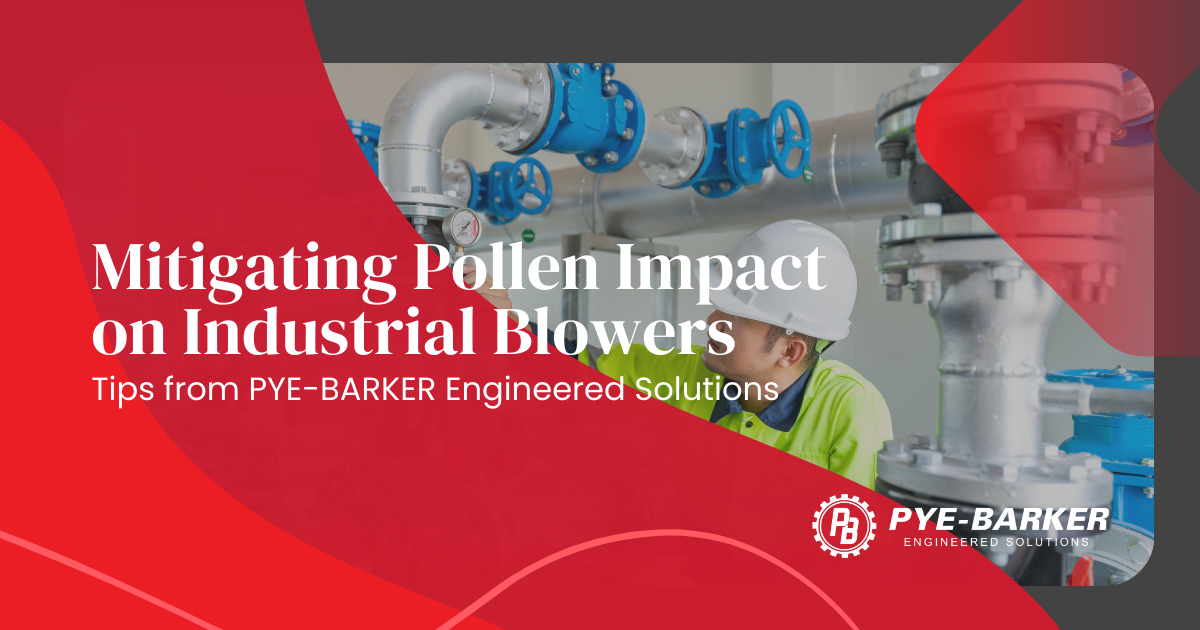
Spring and summer introduce more than just warm weather—they also bring increased airborne particles, like pollen, which can lead to unexpected challenges for industrial blowers. Much like pollen affects human respiratory health, it can compromise the efficiency and longevity of blowers essential to industrial operations.
A blower’s inlet filter is crucial for maintaining clean airflow. During peak pollen seasons, however, this filter is more prone to clogging, which can reduce airflow or even lead to filter damage. When a blower inhales air laden with pollen, it faces elevated pressure levels, which can lead to filter degradation and reduced filtration quality.
Blowers are manufactured with precise clearances, which must remain unobstructed for optimal performance. When filters are compromised, particles may bypass the filter, leading to internal knocking and excess noise. Over time, this can result in increased vibrations, pressure drops, and even visible heat marks due to friction—a sign that performance may be declining.
No filtration system is foolproof, especially in high-temperature conditions. As temperatures rise, so does the blower’s operating temperature, affecting both the blower and the oil inside it. Heat gradually reduces the oil’s ability to dissipate heat, potentially leading to rotor overheating and subsequent blower failure. Routine oil changes are critical for maintaining blower performance during warm weather.
Conclusion
Environmental factors, including pollen and heat, can significantly impact blower performance. Regular maintenance practices, like inspecting the inlet filter and scheduling oil changes, can help prevent these issues from worsening, allowing your equipment to operate efficiently year-round.
FAQs
Q1: How often should I check my blower’s inlet filter during pollen season?
A1: To ensure optimal airflow, inspect the inlet filter weekly during high-pollen periods.
Q2: What are the warning signs of a clogged blower filter?
A2: Increased noise, pressure drops, and visible heat marks on the blower are typical indicators of filter issues.
Q3: Why is changing the oil essential for blower maintenance?
A3: Regular oil changes help maintain the blower’s cooling efficiency, preventing overheating and rotor wear.
Q4: Does pollen affect all types of industrial blowers?
A4: Yes, any blower with an air filtration system can be affected by pollen, particularly during peak seasons.
Call to Action
Ensure your blower’s peak performance all season—schedule a maintenance check with Pye-Barker Engineered Solutions. Contact us at 404-476-6209 or sales@pyebarker.com for expert support.


